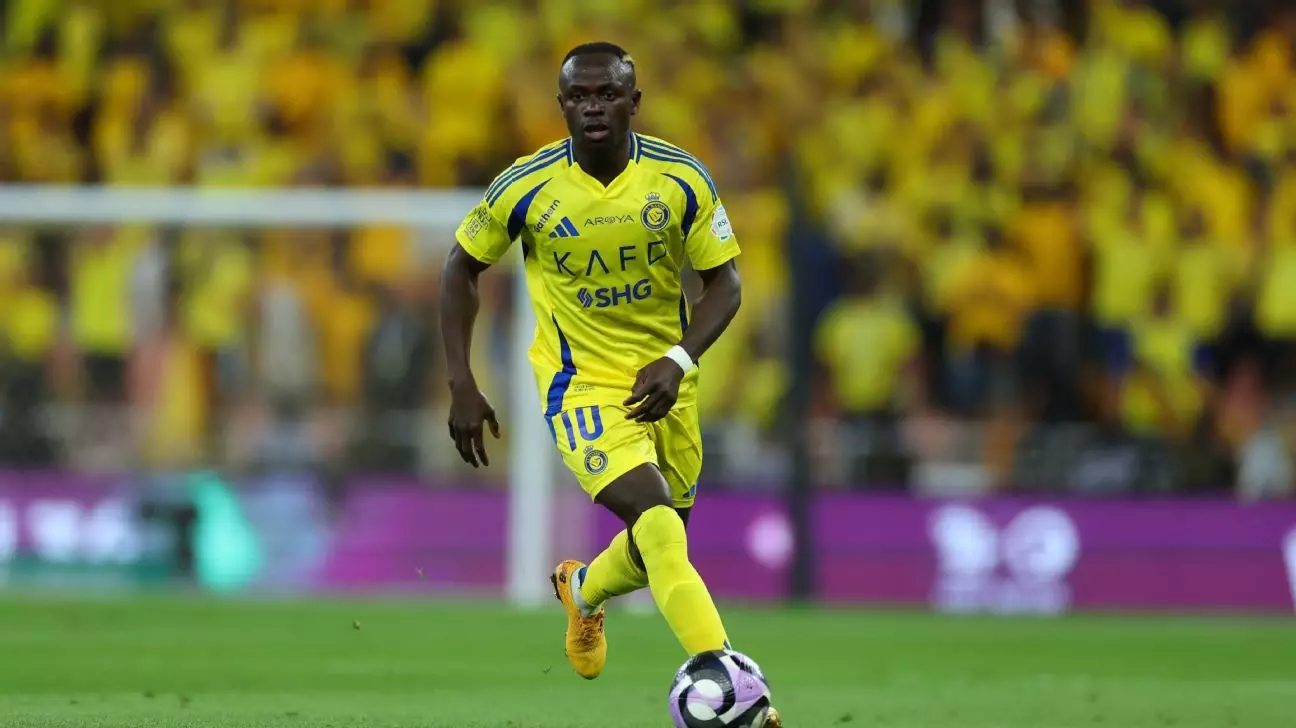In the competitive landscape of professional football, transfer decisions can make or break a manager’s legacy. Jürgen Klopp, currently holding the role of Head of Global Soccer at Red Bull, recently opened up about his past transfer blunders. At a landmark celebration for Hout Bay United Football Community in Cape Town, he pinpointed his failure to secure Sadio Mané as his most significant regret during his tenure at Borussia Dortmund. It’s a powerful reminder of how managerial decisions can reverberate through a career, affecting not only the teams but also the players involved.
Mané, who truly flourished under Klopp’s guidance at Liverpool, becomes a stark example of a missed opportunity that turned into a legendary career. Klopp acknowledges that while he could have openly compromised with financial risk, his hesitance ultimately cost him a chance to mold what could have been a pivotal player in his earlier career. This admission stands as a testament to his reflective, albeit critical nature, showcasing his willingness to learn from the past.
The Financial Calculus of a Manager’s Decision
When Klopp considered signing Mané, the financial aspects were a key factor. He deemed the eventual price tag of approximately £34 million, in contrast to Mané’s previous move to Southampton for £11.8 million, as too risky. This analysis is indicative of a broader theme in football—managers often find themselves at the crossroad of financial prudence and the pursuit of talent. While beneficial in some respects, this careful approach can also function as a hindrance, preventing managers from making bold decisions that could alter the course of their teams’ trajectories.
It’s fascinating to explore how Klopp’s similar regret regarding Kevin De Bruyne embodies this dilemma further. His desire to cement De Bruyne’s presence at Dortmund was thwarted not by personal judgement but by the whims of Chelsea, then managed by José Mourinho. The irony lies in how these managerial slips can lead to a cascade of ramifications, forever altering the competitive landscape for their teams. For Klopp, the harsh reality is that players he could have had become the cornerstones of rival teams.
Catalysts for Change: Klopp’s Emotional Apology
While speaking to fans, Klopp’s heartfelt apology for not signing Mané was more than a mere acknowledgment of a past misstep; it illustrated his deep-seated respect for supporters. His suggestion that he had outgrown a phase of naivety and caution underscores how growth can often stem from reflective learning. It displays a humanizing quality in a manager known for his fiery personality and intense commitment to winning.
Furthermore, Klopp’s candidness reveals an emotional vulnerability that sets him apart from many in his position. Rather than placing blame elsewhere, he addresses his own miscalculations and appears willing to bear the weight of those decisions. The sincerity with which he acknowledges these past failures resonates strongly with fans, who appreciate a leader that embodies both strength in success and accountability in failure.
Rivalry and Respect: The Fine Balance
Aside from reflecting on transfers, Klopp also delves into the emotions intertwined with rivalries in football, particularly his adversarial relationship with Pep Guardiola. While the two teams—Liverpool and Manchester City—have engaged in fierce competition over recent seasons, Klopp maintains that such rivalries shouldn’t cloud the mutual respect he has for Guardiola. His statement that animosity is more about the clubs than the individuals showcases a mature understanding of the dynamics involved in professional sports.
In essence, Klopp dissociates personal feelings from the competition, suggesting that toxic rivalries serve no constructive purpose. There’s a certain grace to this perspective—recognizing that beneath the surface of competition lies a camaraderie shaped by shared experiences and aspirations. Klopp underscores that the management profession could benefit from more collaboration rather than friction, hinting at a desire for a footballing culture built on mutual respect.
Looking Beyond the Touchline: Klopp’s Broader Aspirations
As he ponders his career trajectory, the thought of returning to the touchline as a head coach doesn’t hold the allure one might expect. Instead, Klopp echoes a passion for using football as a unifying tool, emphasizing its capacity to bring communities together. Beyond the realm of competition, there lies an opportunity to leverage sport for social good—a concept that is increasingly resonating in today’s world.
His commitment to empowering local communities, exemplified by his patronage of Hout Bay United Football Community, reveals a profound understanding of football’s impact beyond the pitch. This approach suggests that, regardless of the highs and lows experienced within the industry, Klopp’s vision extends towards uplifting others—a refreshing shift from the often self-centered narratives prevalent among elite managers. With such a mindset, Klopp may very well leave a legacy that touches more than just trophies and accolades; he aims for sustainable change and community strength through the beautiful game.

